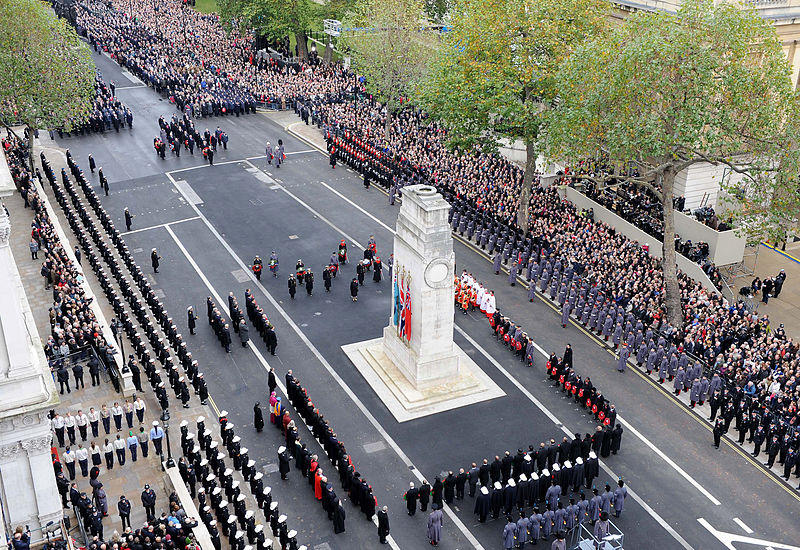The Nicholas Winton Kindertransport Myth Comes Off the Rails
Visitors to Prague railway station are often intrigued by the group of bronze sculptures that stand on Platform One. It is a forlorn scene — a bespectacled man holding a crying child, a sad-looking little girl and a battered suitcase.
These striking figures form the Sir Nicholas Winton Memorial Sculpture and tell the story of the Czech Kindertransport and in particular the “British Schindler” who spirited 669 Jewish children from Czechoslovakia to London in 1939 from under the noses of the German invaders.
More than any other living Jewish person, Sir Nicholas Winton, who has just turned105, represents Britain’s most famous living link to the Holocaust. Since his story was rediscovered by the BBC, he has been lavished with honours, knighted by the Queen and is now a nominee for a Nobel Peace Prize. The torrent of books, films and documentaries about him seem to be never ending.
This week he was honoured again at a magnificent ceremony in Prague Castle where the wheelchair-bound retired banker received the highest award that the Czech Republic could bestow — the Order of the White Lion, presented by the Czech President himself.
It was a splendidly Ruritanian affair. Sir Nicholas was flanked by an honour guard, serenaded by a choir and orchestra, and met by a handful of the tearful survivors of those journeys holding pictures of themselves as children in 1939.
But there is something very wrong with all this. The problem is right there in the bronze tableau at the railway station — for nothing remotely like this ever happened. Sir Nicholas was never at the railway station to see the children off, so he cannot have held any of them in his arms. Nor was he in any real danger himself. He only spent three weeks in Prague over the Christmas break in 1938 and left before the Germans arrived. Read more


 There is no more heartfelt symbol of traditional feeling in Britain than the poppy. and this is why two recent government funding decisions revealed such an astonishing shift in cultural priorities. The first was a refusal to fund a
There is no more heartfelt symbol of traditional feeling in Britain than the poppy. and this is why two recent government funding decisions revealed such an astonishing shift in cultural priorities. The first was a refusal to fund a 


